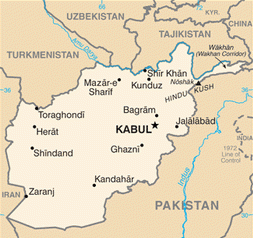Less than two months into 2012, the Iraqi government has executed at least 65 prisoners, as the country continues to slip into dictatorship with continued support from the U.S.
 Many aspects of the government in Baghdad have spiraled out of control since the end of the U.S. military occupation, but the rate of state executions has skyrocketed. In January, 51 prisoners were put to death, and 14 more on February 8.
Many aspects of the government in Baghdad have spiraled out of control since the end of the U.S. military occupation, but the rate of state executions has skyrocketed. In January, 51 prisoners were put to death, and 14 more on February 8.
“The Iraqi government seems to have given state executioners the green light to execute at will,” said Joe Stork, deputy Middle East director at Human Rights Watch. “The government needs to declare an immediate moratorium on all executions and begin an overhaul of its flawed criminal justice system.”
Prime Minister Nouri al-Maliki’s security forces have detained and brutally tortured more than 1,000 political opponents in secret prisons and denied them access to legal counsel. Ayad Allawi, a political opponent of Maliki, has alleged that Maliki aims to extract false confessions that implicate his political rivals and justify taking legal action against them.
Indeed, some of the confessions obtained through torture in the last few months have been the basis for trying to detain Maliki’s Vice President Tareq al-Hashemi on trumped up terrorism charges, in a broader effort to marginalize Sunni leaders in the country.
Maliki’s turn towards dictatorship sharpened almost immediately after U.S. occupation forces left in December. He has circumvented Parliament, consolidated illegitimate power in a long trend of quasi-dictatorial behavior, harshly cracked down on peaceful activism, harassed and even attacked journalists that were critical of his regime, and recently betrayed an agreement that would have limited his ability to marginalize his Sunni rivals.
Despite all this, the Obama administration is planning to negotiate with the Iraqi government on a new long-term defense agreement that may include an expanded number of U.S. troops and U.S. support in the form of money and weapons continue to flow.


